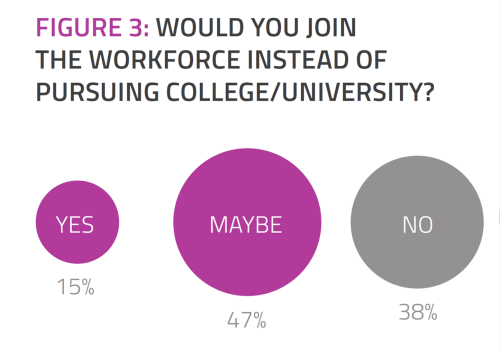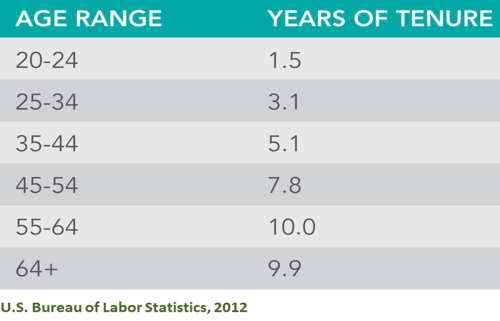We haven’t quite got GenY figured out, and here comes GenZ! Universum, the global employer branding firm, has conducted a GenZ survey and found some interesting conclusions. In Generation Z Grows Up we’re given a bit of a peek into this new generation that will be 40% of all consumers by 2020 (less than 5 years from now!) and there is news:
-
GenZ is spooked by the college debt of the Millennials
-
GenZ doesn’t think universities are preparing students for workplace success
-
GenZ perceives current high levels of unemployment following university/college graduation
And it appears that Gen Z’s current orientation to post-secondary education isn’t what we might expect:
 It would appear that 62% of Gen Z would consider joining the economy right after high school – particularly if employers will invest in their training. Of course, as with all things global, attitudes are different around the world. On average, though, if only 38% of high school students globally are committed to enrolling in a university degree program before joining the world of work, there are a great many young people considering forgoing the traditional post-secondary education route in favor of less debt, more employer-sponsored training, and more employment opportunities. Maybe.
It would appear that 62% of Gen Z would consider joining the economy right after high school – particularly if employers will invest in their training. Of course, as with all things global, attitudes are different around the world. On average, though, if only 38% of high school students globally are committed to enrolling in a university degree program before joining the world of work, there are a great many young people considering forgoing the traditional post-secondary education route in favor of less debt, more employer-sponsored training, and more employment opportunities. Maybe.
Universum has been surveying college/university and graduate school students about to graduate for almost 30 years. It probably has the biggest and most robust data set of student expectations and employer preferences in the world. The 2015 Gen Z survey asked more than 50,000 recent high school graduates about their future careers, higher education plans, as well as their attitudes about work and life. A real window into the next generation of employees.
I know it seems like we haven’t figured out the Millennials yet. But time is marching on and it’s time to meet and greet a whole new generation of employees. Given the dramatic demographic shifts we’re experiencing, we can’t get to know these newcomers fast enough. The first truly digital natives are sure to provide employers opportunities as well as challenges.












